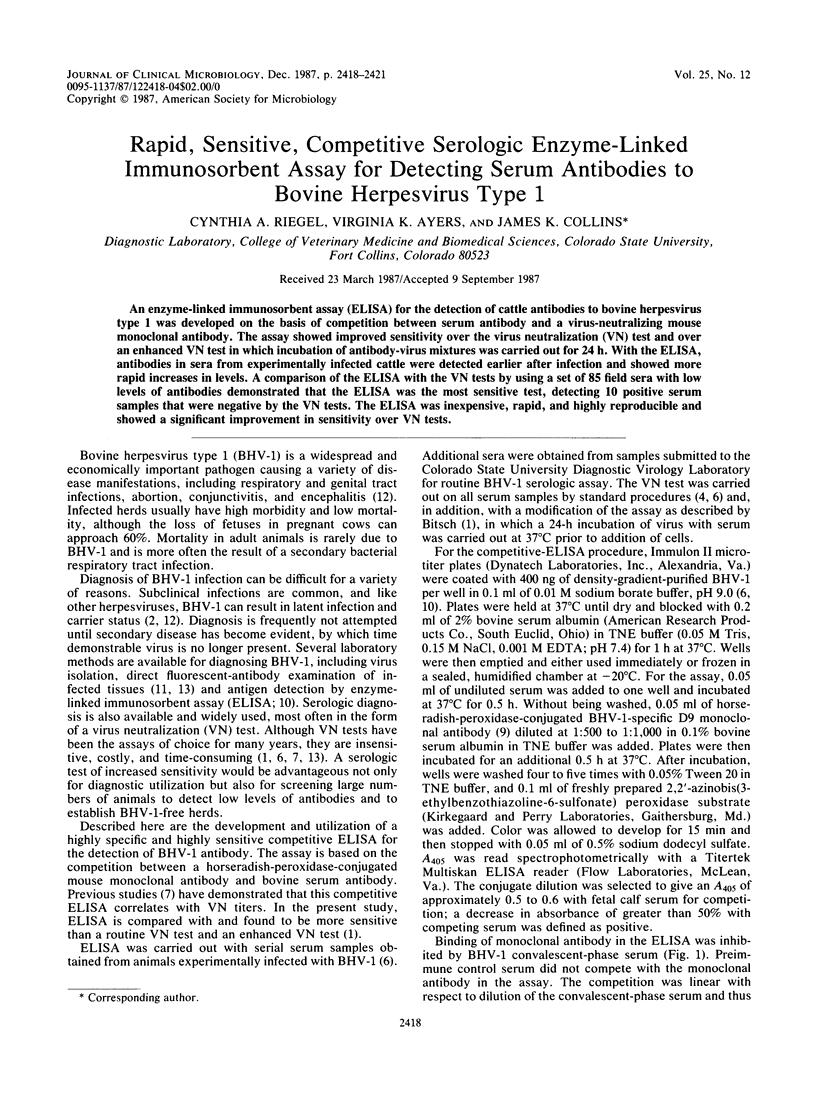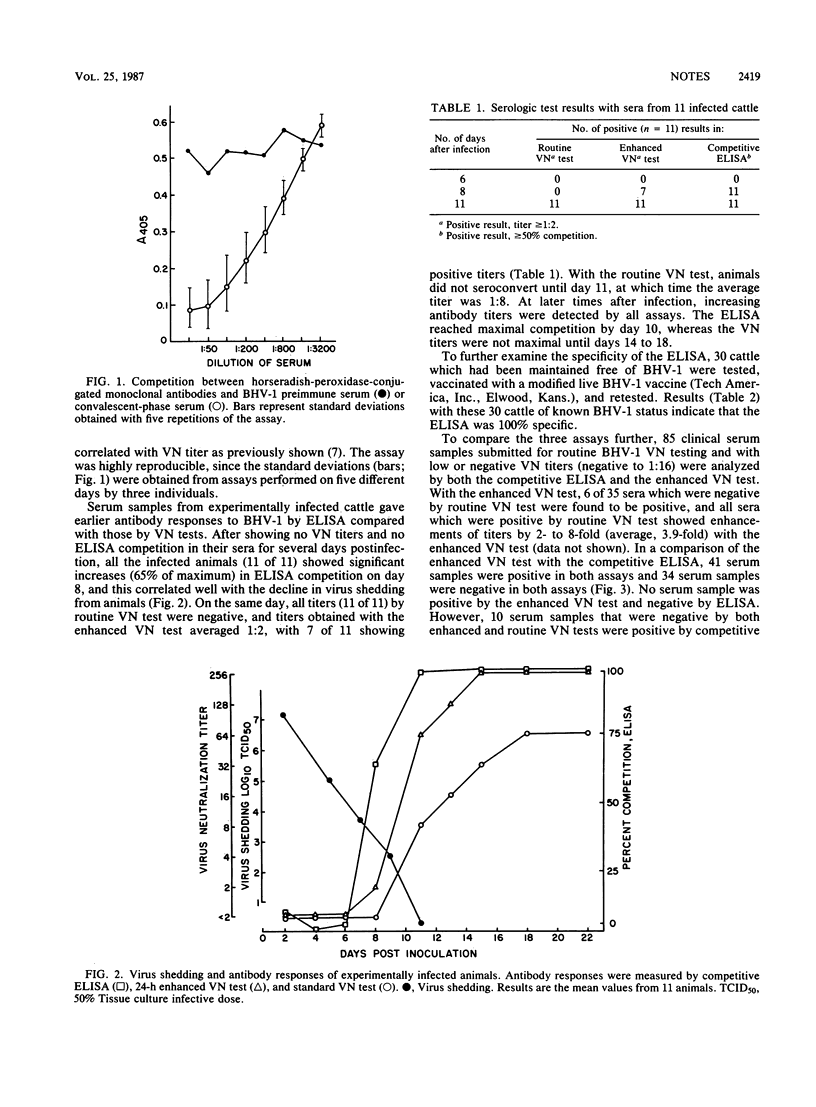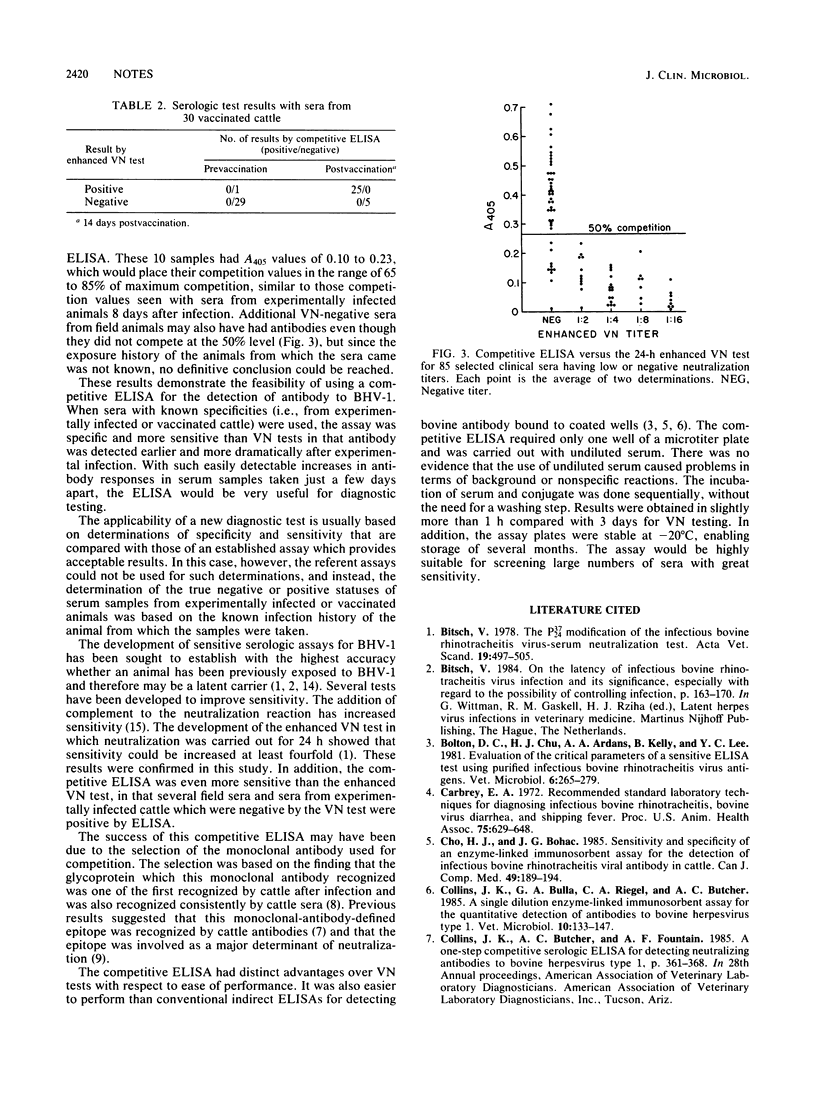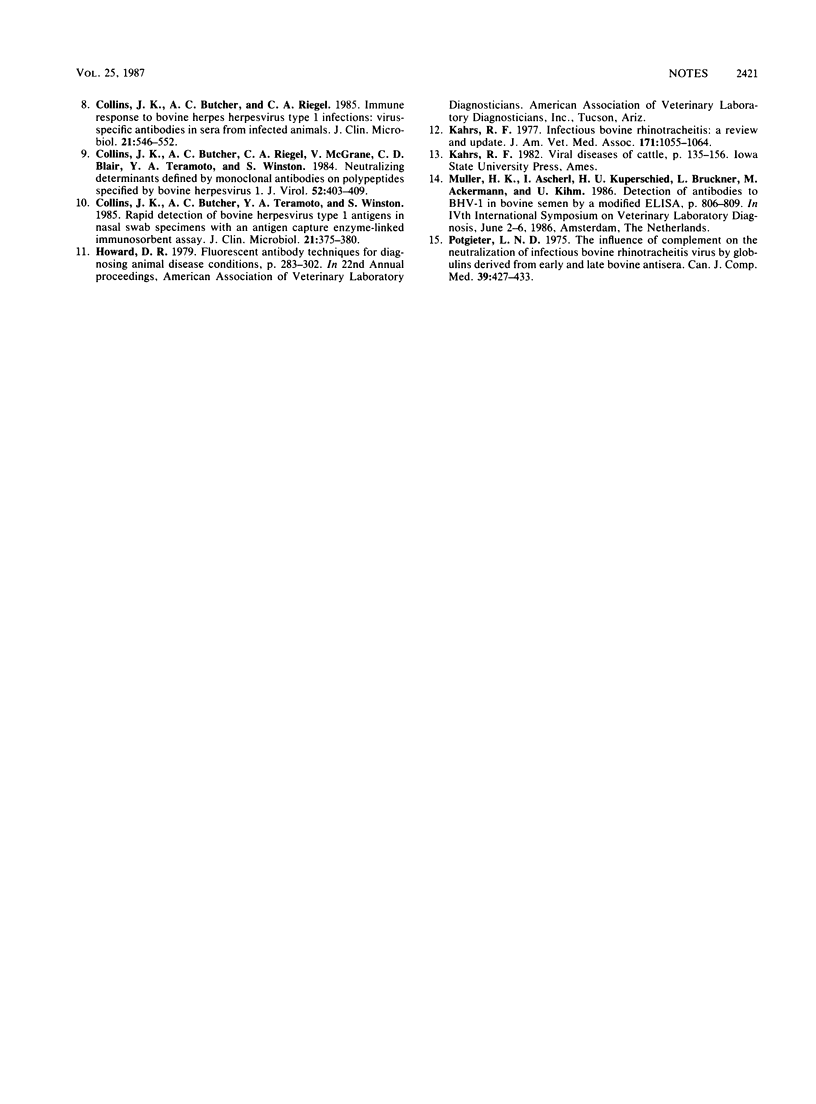Abstract
An enzyme-linked immunosorbent assay (ELISA) for the detection of cattle antibodies to bovine herpesvirus type 1 was developed on the basis of competition between serum antibody and a virus-neutralizing mouse monoclonal antibody. The assay showed improved sensitivity over the virus neutralization (VN) test and over an enhanced VN test in which incubation of antibody-virus mixtures was carried out for 24 h. With the ELISA, antibodies in sera from experimentally infected cattle were detected earlier after infection and showed more rapid increases in levels. A comparison of the ELISA with the VN tests by using a set of 85 field sera with low levels of antibodies demonstrated that the ELISA was the most sensitive test, detecting 10 positive serum samples that were negative by the VN tests. The ELISA was inexpensive, rapid, and highly reproducible and showed a significant improvement in sensitivity over VN tests.
Full text
PDF



Selected References
These references are in PubMed. This may not be the complete list of references from this article.
- Bitsch V. The P 37/24 modification of the infectious bovine rhinotracheitis virus-serum neutralization test. Acta Vet Scand. 1978;19(4):497–505. doi: 10.1186/BF03547589. [DOI] [PMC free article] [PubMed] [Google Scholar]
- Cho H. J., Bohac J. G. Sensitivity and specificity of an enzyme-linked immunosorbent assay for the detection of infectious bovine rhinotracheitis viral antibody in cattle. Can J Comp Med. 1985 Apr;49(2):189–194. [PMC free article] [PubMed] [Google Scholar]
- Collins J. K., Bulla G. A., Riegel C. A., Butcher A. C. A single dilution enzyme-linked immunosorbent assay for the quantitative detection of antibodies to bovine herpesvirus type 1. Vet Microbiol. 1985 Jan;10(2):133–147. doi: 10.1016/0378-1135(85)90015-x. [DOI] [PubMed] [Google Scholar]
- Collins J. K., Butcher A. C., Riegel C. A. Immune response to bovine herpes herpesvirus type 1 infections: virus-specific antibodies in sera from infected animals. J Clin Microbiol. 1985 Apr;21(4):546–552. doi: 10.1128/jcm.21.4.546-552.1985. [DOI] [PMC free article] [PubMed] [Google Scholar]
- Collins J. K., Butcher A. C., Riegel C. A., McGrane V., Blair C. D., Teramoto Y. A., Winston S. Neutralizing determinants defined by monoclonal antibodies on polypeptides specified by bovine herpesvirus 1. J Virol. 1984 Nov;52(2):403–409. doi: 10.1128/jvi.52.2.403-409.1984. [DOI] [PMC free article] [PubMed] [Google Scholar]
- Collins J. K., Butcher A. C., Teramoto Y. A., Winston S. Rapid detection of bovine herpesvirus type 1 antigens in nasal swab specimens with an antigen capture enzyme-linked immunosorbent assay. J Clin Microbiol. 1985 Mar;21(3):375–380. doi: 10.1128/jcm.21.3.375-380.1985. [DOI] [PMC free article] [PubMed] [Google Scholar]
- Kahrs R. F. Infectious bovine rhinotracheitis: a review and update. J Am Vet Med Assoc. 1977 Nov 15;171(10):1055–1064. [PubMed] [Google Scholar]
- Potgieter L. N. The influence of complement on the neutralization of infectious bovine rhinotracheitis virus by globulins derived from early and late bovine antisera. Can J Comp Med. 1975 Oct;39(4):427–433. [PMC free article] [PubMed] [Google Scholar]


